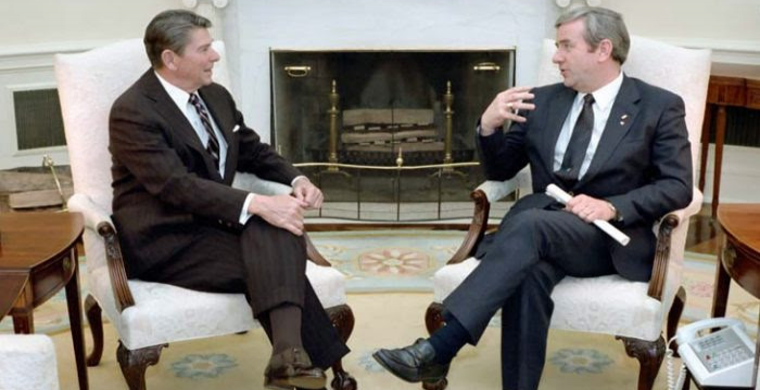Blaming Religious Right for Christian Decline
By MARK TOOLEY
https://juicyecumenism.com/2019/11/06/blaming-religious-right-for-christian-decline/
Nov. 6, 2019
New York Times columnist Nicholas Kristoff has written the umpteenth claim that declining churches and Christian influence in America owe to conservative "religious blowhards" who "have entangled faith with bigotry, sexism, homophobia and xenophobia." And "for some young people, Christianity is associated less with love than with hate."
Every branch of Christianity, and every religion, has its share of blowhards and hypocrites. Conservative Christian blowhards get more attention because they have political influence and peeve liberal cultural elites. But do they deserve exclusive credit for overall Christian decline?
Religious Right fixtures get the spotlight because of their politics, but there's little evidence that churches grow or decline based on political stances or national media attention that's negative or positive. Evangelicalism, especially Pentecostalism, should have declined after the widely broadcast televangelist scandals of the late 1980s. Jimmy Swaggart and Jim Bakker (both of whom remain on television today, though with much diminished influence) suffered interlocking sexual and financial imbroglios, but the Pentecostal denominations to which they belonged remained fast growing. Evangelicalism also continued its growth, as did Evangelical political influence.
Today white evangelicalism is in slow decline while non-white evangelicalism is growing. Liberal churches, which are nearly all white, are shrinking much faster and have been shrinking continuously for 55 years. They have not, from the view of columnist Kristoff, "entangled faith with bigotry, sexism, homophobia and xenophobia." They are firmly in political and cultural sync with secular culture. So why aren't they growing?
Liberal churches and liberal Christian political activists barely register in national media or conversation. They don't have the influence in Democratic Party politics that conservative Evangelicals enjoy among Republicans. Forty and 50 years ago liberal Protestant chieftains occupied a bigger political space. Mainline Protestant agencies and prelates got media attention opposing the Vietnam War and urging Nixon's resignation. The National Council of Churches was often referenced.
The early 1980s media exposes of Mainline Protestant support for Marxist causes marked the beginning of the end for their public influence. It was obvious that far left church prelates didn't politically represent average Mainline church goers who were and remain politically right of center.
And yet it's wrong to think that far-left political stances by Mainline prelates caused liberal church decline, which began years before these church agencies politically radicalized. No doubt some church goers quit their denominations in protest or disgust over national church public positions. But I think few did for that reason. They mostly quit from indifference and apathy in reaction to vapid theology.
Churches are primarily relational and personal. Congregations grow or decline based on their theological agenda, spirit, outreach and people skills. National denominational policies or national political impressions conveyed through media do not typically play major roles in the fate of local churches. The scandal or politics or favorable publicity of a national religious figure is unlikely to affect local congregations.
Are the controversies of Jerry Falwell Jr affecting attendance at local evangelical churches? Probably no more so than did the lavishly favorable media attention on Episcopal Church Presiding Bishop Michael Curry's globally broadcast royal wedding sermon last year on still ongoing Episcopal Church decline.
Journalists and pundits are understandably focused on religion's perceived macro political influence, not on its harder to define spiritual impact on individuals. Growing Hispanic Pentecostal congregations lack a cohesive national voice, aren't socially prominent, and don't seek or receive much media attention. They grow irrespective of national media impressions about Evangelicals.
Last week I talked to a national evangelical campus ministry leader, who said their work continues to thrive, just as many local evangelical congregations thrive, irrespective of national media caricatures. Their effectiveness depends on their personal impact on individuals, not media narratives, positive or negative.
END














